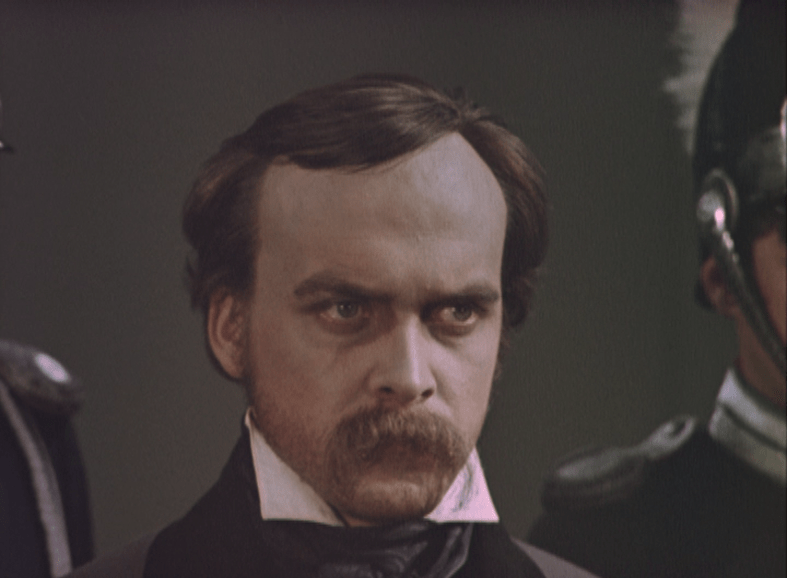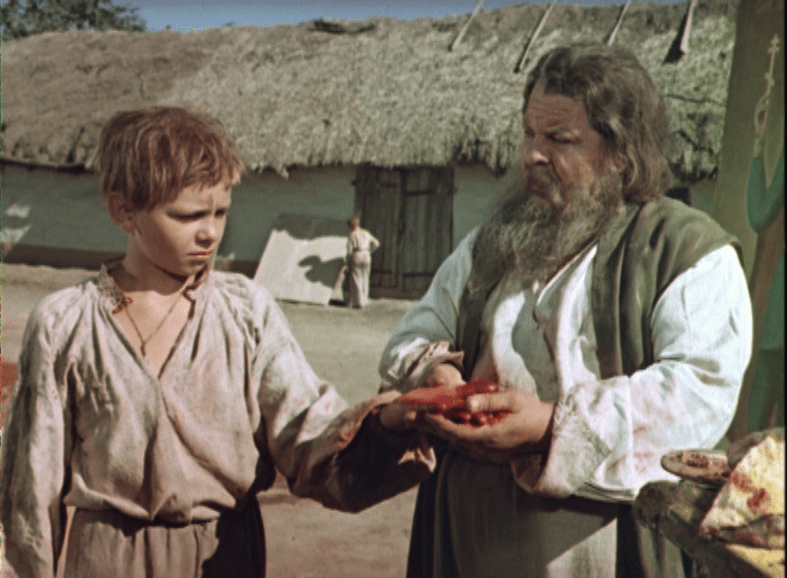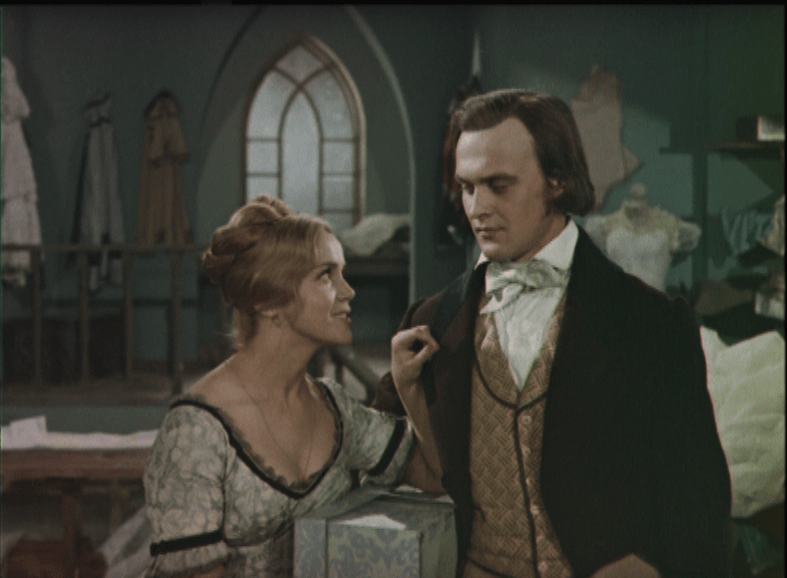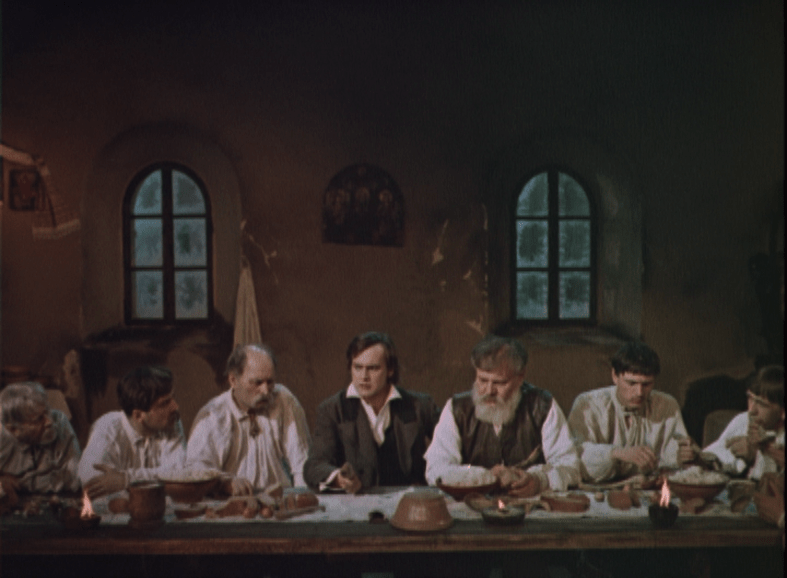
A Dream / Son
1964
Ukrainian SSR, Oleksandr Dovzhenko Film Studio
80 min
Volodymyr Denysenko
Dmytro Pavlychko, Volodymyr Denysenko
Mykhailo Chornyi
Ivan Mykolaichuk, Yura Leontiev, Dmytro Miliutenko, Nataliia Naum, Kostiantyn Stepankov, Mikhil Derzhavin, Vasyl Dashenko, Dmytro Franko, Ivan Kononenko, Volodymyr Honcharov, Yukhym Kopelian, Raisa Nedashkivska
A Dream is a biographical film about the poet Taras Shevchenko, detailing his life from childhood to his exile. The plot is simultaneously based on the poem A Dream, Shevchenko’s memories after interrogation, his dreams, visions, and historical events that took place in Ukraine.
The main role, Taras Shevchenko, was initially to be played by the actor Mykola Hubenko, but he had a falling out with the director. Thus, 23-year-old Ivan Mykolaichuk, then a student at the Karpenko-Karyi Institute, who was also filming the lead role in Shadows of Forgotten Ancestors, was asked to play the role.
The film premiered in Kyiv on November 3, 1964. Director Volodymyr Denysenko cleverly chose as the narrative framework the satirical poem A Dream (Everyone Has Their Fate), written by Shevchenko in 1844 during the time dubbed as Three Years Period. This work was perceived as a true manifesto against Tsarism, depicting the Russian Tsardom as a ruthless and absurd authoritarian regime. For the satirical portrayal of the Empress, the Emperor punished Shevchenko more severely than the other members of the Cyril and Methodius Brotherhood, sending him to military service in Orenburg with a ban on writing and drawing.
However, Denysenko (who, by the way, was sentenced in 1949 to five years of labor camp for “’Ukrainian bourgeois nationalism” and exiled to Kirov) uses this plot merely as a backdrop to create another Shevchenko biopic with a canonized life trajectory: from a village boy to an influential cultural figure.
Nevertheless, A Dream is primarily an attempt to argue with the Soviet image of Kobzar created by Ihor Savchenko in the film Taras Shevchenko (1951). Shevchenko, as portrayed by Serhii Bondarchuk, is more of a Soviet ideological construct of a fighter, a prophet of their future revolution. By challenging this image, Denysenko to some extent heightens its relevance to the Ukrainian dissidents of the 1960s and 1970s, thereby laying the foundations for further national myth-making and the canonization of Shevchenko as a key figure in Ukrainian nation-building.



